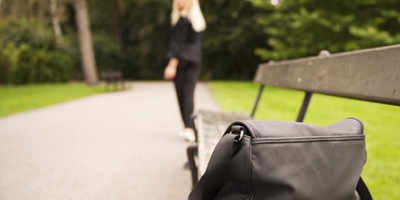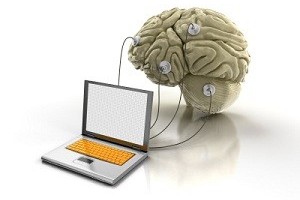I was just wondering…….When you lose something, how much do you really lose?
I started to ponder this question more after a recent event with my son and daughter- in-law. For weeks, we had been awaiting their visit to our winter escape hatch in the south. Just hours before their departure on Amtrak I received an urgent call from him declaring with hopeless certainty that they would not be coming.
Now worried myself, imagining the direst of possibilities, I shot back, “What’s wrong?” while attempting to control my rising panic.
“Carey lost her purse,” he countered,” and we won’t be able to get on the train.”
I calmed down now, relieved that no one was injured or sick, and was able to provide a more rational viewpoint to his loss of perspective. After a few investigative questions, it appeared that the purse was most likely left in a cab. Besides their concern over the items in the bag, such as the camera, her cell phone, some cash, as well as numerous personal items such as credit cards and driver’s license, he had convinced himself that they would not let her on the train without an I.D. I suggested they check with an Amtrak official and they learned they would be admitted.
This only solved the trip or no trip dilemma, however, and they both continued to obsess over where the purse was, who would find it, what the finder would do with it, perfectly natural considerations under the circumstances. After they had boarded the train, my son reported his wife was still crying so I asked to speak with her, hoping to take her focus off the purse so she could enjoy the trip.
As I gingerly attempted to comfort her, she replied petulantly, “Well, you would be upset too!”
“As a matter of fact, you’re right,” I responded, remembering our trip with them to Alaska when we took the White Pass Yukon sightseeing excursion. I had just purchased a new camera, and as the train made a brief stop to left off some hikers, I went outside on the platform to take a scenic picture of Skagway. Just at that moment, someone pushed the door open which bumped my arm, and I watched in horror as my camera slipped out of my hand, onto the platform and slid down between the cars of the train, right in the center of the track. As the train slowly began to move forward my camera disappeared from sight.
I have never forgotten my reaction that day, because it was one of those times when circumstances in life present you with an opportunity to learn something, to grow, to mature. Nothing like that was about to happen then, however, as I lamented over and over to my husband between sobs,“All of our pictures are gone, my new camera is gone,” as miles and miles of spectacular scenery passed me by.
Next, I would fix my attention on the conductor, plotting with him ways to retrieve my camera.
“I know just where it is,” I’d say. “Can I hike to the spot when I get back? Can the next train retrieve it?”
Trying to be reassuring but also realistic, he would patiently answer that yes, the next train would look for it- they had already been alerted, but more than likely it had slipped off the side of the hill. My family tried to comfort me, but I was singularly focused on recovering that camera! When we made a stop at a lovely garden, I was more interested in looking for other train officials so I could grill them about ways to retrieve my camera. While a number of people expressed sympathy, I’m sure the majority onboard wished that I might have met the same demise as my camera.
Here I was, supposedly an adult, having a meltdown over a CAMERA!
Remembering these events, I reminded my daughter-in-law of them, acknowledging that while yes, I would be upset, being upset like me may not be the best course of action. Her sobs began to turn into a chuckle, as I reinforced her change in attitude by reminding her that she was capable of being better than me. She began to relax and settle into the trip, grateful now that they were able to get on the train.
The irony of both stories is that both the camera and the purse were recovered, fully intact, with all contents. The next train spotted my camera exactly where I said it was and it was waiting for me at the station at the end of the trip, and my daughter in law’s purse was turned into the police by the cab company.
This is a reminder that there are many people out there who can still be trusted, who will perform a good deed. Sadly, however, so much time wasted on worry, projection of disaster. But the question to ask yourself is what happens to you when you lose something? Is it an immediate calamity? Does it interfere with other situations? Does it ruin your day? What else have you lost by your focus on something that may not even come true?
I was just wondering…….?



